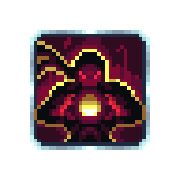|
pouring one out for my old group's paladin with low STR and CHA and high WIS "yeah I want to specialize in healing rather than attacking or defending allies, it's a bit clunky right now but I want to see if the idea comes together at some point" which, to his credit, it did, around level 8 or so he did become a genuinely useful secondary healer still pouring one out and it's a healing potion
|
|
|
|

|
| # ? May 25, 2024 07:23 |
|
Halloween Jack posted:I wonder if these choices are really meaningful, and if so, how to present them to players. Ability scores manage that process, but in a haphazard way that's bad for all the reasons we've discussed, especially when players are already making several thematic choices during character creation that then get "filtered" through ability scores. (It seems to me that the biggest problem is that it's paradoxical--there are theoretically infinite possibilities, but only a handful that are actually good, so a system designed to give you options ends up enforcing sameness. If you wanted all 3rd-level rogues to be basically identical, you could just play Brown Box D&D and save a lot of time.)
|
|
|
|
None of y'all talking about the only stat that matters: the anal circumference score.
|
|
|
|
(I'm replying backwards on purpose)Halloween Jack posted:And on the other hand, there are very different ways to approach the D&D ruleset, like in the Black Hack: You only roll ability scores. 3-18 ability scores are meaningful because it's roll-under on a d20. Skills are replaced by character traits that either give you advantage (roll twice take best) or don't. Halloween Jack posted:The kind of system GIP describes is ultimately what I want. For a game in the D&D mold where combat is expected to be a major part of play (even if it's to be avoided), I would rather cleave combat mechanics away from noncombat mechanics completely, and not have a set of ability scores that govern effectiveness at both of them. I'm not completely sure how to do that, though. D&D's complex character creation and leveling is also a prime example of this out-of-play engagement. Even if you can only play a few times a month poking and pulling at the janky mechanics and character creation to discover new weird character builds is something you can do any time. This can be theorycrafting potential characters or planning your next level or browsing weird magical items or whatever. Ability scores and per-level multiclassing feed into this for 3.x and 5E. Multiclassing means that even if your class has a fairly locked-in leveling progression you can still think about what would happen if you started grabbing levels of other classes instead, even if you realistically have no plans to do so. Ability scores feed into this in that they act as an arbitrary, but not obviously arbitrary, restriction on what multiclassing "works". Thinking "Will I multiclass" followed by "OK but all these ones would be garbage because my ability scores don't match up" followed by "Actually I think I'll just grab my next level normally" gives you a greater feeling of control over your character progression than being locked into one class or a table telling you which classes may multiclass into each other does not, even if the end result is 95% of the time exactly the same. More importantly, the former allows you to go "OK, but how COULD I make a Fighter/Wizard multiclass work?" (The 4E equivalent to the multiclassing level up potential was feats and (multiclass feats + out-of-class power unlocks) which brought a whole bunch of different problems) So ability scores are bad because of a whole bunch of reasons, including that they make it possible to lose at character creation, but they also let you win at character creation by making characters that feel like they were an achievement to construct. Similarly per-level multiclassing absolutely destroys pretty much all the actual benefits of using a class based system, but it brings a huge feeling of potential in every level up. While from a mechanical point of view you can completely replace ability scores with a proper skill array and lego-block character creation, and per-level multiclassing is just a flat out bad idea, but if you want to capture the ~true feel of D&D~ you're going to have to replace them with something that offers the same benefits. Which for ability scores probably means completely different arbitrary restrictions designed from the ground up to only get in the way in entertaining ways, and for multiclassing... well, that's even more complicated. Splicer fucked around with this message at 01:16 on Dec 2, 2021 |
|
|
|
Rings very true. Also gives a new perspective on the ďpower gamerĒ type. In some cases, itís not that they enjoy playing powerful characters; itís that their main interest in playing at all is to evaluate and reward the choices made in character building.
|
|
|
|
I'm about half way through reading 13th age, and I really wonder what why they kept the attributes the way they did. They did a better job at making "no bad attribute", but you still need to have your attributes since your saves now depend on every stat, and your class still needs 1, 2, or 3 primary stats.
|
|
|
|
ninjoatse.cx posted:I'm about half way through reading 13th age, and I really wonder what why they kept the attributes the way they did. They did a better job at making "no bad attribute", but you still need to have your attributes since your saves now depend on every stat, and your class still needs 1, 2, or 3 primary stats. Because Rob Heinsoo was the lead designer who wanted to do new experimental things and Jonathan Tweet was the lead designer who was a D&D traditionalist who put really pissy messages into the intro of 13 True Ways when people disliked the Monk during playtests. I'm oversimplifying, but 13th Age does genuinely have a major internal schism about how traditionally D&D it wants to be.
|
|
|
|
The purest distillation of 13th Age being like that for me is a sidebar somewhere that's like "you should sometimes contrive situations so your 1d12 greataxe barbarian has to use a 1d4 dagger instead, for no particular reason".
|
|
|
|
Ferrinus posted:The purest distillation of 13th Age being like that for me is a sidebar somewhere that's like "you should sometimes contrive situations so your 1d12 greataxe barbarian has to use a 1d4 dagger instead, for no particular reason".
|
|
|
|
It speaks volumes about D&D as a game and a genre that the Knight lives in her suit of armour 24/7 and the Barbarian doesnít go to the loo without their greataxe.
|
|
|
|
Siivola posted:It speaks volumes about D&D as a game and a genre that the Knight lives in her suit of armour 24/7 and the Barbarian doesn’t go to the loo without their greataxe. Don't worry clever and good DMs throw in the classic "ambush while the group was sleeping, you aren't wearing your armor this encounter!" Or trolly problems to guarantee paladins fall, and all sorts of compelling story gotchas. Then the sort who love that poo poo go on to become game designers and write clever rules like "actually if you rest in your armor here's the ongoing penalty you take" Weirdly enough they never make a "As a wizard or cleric you don't get access to your magic until after you spend 5 minute pondering your orb or praying." Yes, yes they have equivalent "you must have time to prep" but the ambush during camp is never "Oh the barbarian was oiling their axe and has it ready and the fighter is in full plate. Sorry Amazing Rando, you were in the middle of readying spells, so lose access to all of your class features this encounter."
|
|
|
|
Imagine having this discussion in a game where you race cars. "Oh you went to get a Subway from the shop across the street? Idiot." But it also kills me that D&D characters are so defined by their stuff that separating them from it bricks the game. Siivola fucked around with this message at 06:20 on Dec 2, 2021 |
|
|
|
I mean there are a bunch of shooters that strip you of all your nice guns and force you to crawl around with a knife in a stealth section like some dipshit, so the mentality really does spill over into other games
|
|
|
|
Coolness Averted posted:Don't worry clever and good DMs throw in the classic "ambush while the group was sleeping, you aren't wearing your armor this encounter!" Or The trope is literally "taking the wizard's spellbook". In 2nd edition D&D, if the wizard loses their spellbook, they're pretty much screwed. As a result, it ends up being a once in a campaign plot device or else it got old fast. Adding an unseen challenge , but turning a character into a lump is not.
|
|
|
|
Ferrinus posted:The purest distillation of 13th Age being like that for me is a sidebar somewhere that's like "you should sometimes contrive situations so your 1d12 greataxe barbarian has to use a 1d4 dagger instead, for no particular reason". I'm probably running 13A in a month or two, and looking forward to it. I do wish it had something COMP/CON-like, however.
|
|
|
|
ninjoatse.cx posted:The trope is literally "taking the wizard's spellbook". In 2nd edition D&D, if the wizard loses their spellbook, they're pretty much screwed. As a result, it ends up being a once in a campaign plot device or else it got old fast. Adding an unseen challenge , but turning a character into a lump is not. Meanwhile rules were explicitly written to punish martial characters for trying to get around those gotchas. At this point I'm just going into the canard where "D&D magic is as limitless as imagination. Non magic is as limited as imagination."
|
|
|
|
50 gp buys you an empty spellbook. You have to pay a further 10 gp per spell level per spell to fill it.
Siivola fucked around with this message at 08:05 on Dec 2, 2021 |
|
|
|
IMO there's no particular reason why a fighter's magic sword can't just pop into existence in her hand when she wants it, and pops out of existence when she's done with it. Sure, you can prevent that, with anti-magic, but that also works on wizards. Convenient! But wait, you say, how does the fighter upgrade to a pike? Obviously she tells the sword to gently caress off, and tells the pike it's hers now. It listens, because it's magic, and fighters have a unique and particular affinity for martial weapons, so they listen. The magic halberds and falchions grok fighters and vise-versa. Hold on, though, someone demands, isn't this totally OP, like they can't easily be held captive, they can't easily be disarmed, etc. etc.? Well, yes. Kinda just like wizards, now you mention it.
|
|
|
|
Ferrinus posted:The purest distillation of 13th Age being like that for me is a sidebar somewhere that's like "you should sometimes contrive situations so your 1d12 greataxe barbarian has to use a 1d4 dagger instead, for no particular reason".
|
|
|
|
Siivola posted:50 gp buys you an empty spellbook. You have to pay a further 50 gp per spell level per spell to fill it. I have literally never played in a game with transcribing cost rules enforced. Hell, I've never seen stuff like component costs enforced either, tbh. A quick google search also shows 5e reduced the cost to 10 gp per level and reduced the scribe time if making backups, because it would be unfair otherwise. Residuum? gently caress off with that mmo poo poo for babbies
|
|
|
|
My Lovely Horse posted:And they made your weapon die size vitally important, too. Going from d12 to d4 (which is, admittedly, an extreme example) makes a difference of something like 20 points of damage per hit at mid-levels. Generally the simple table with "simple weapon, martial weapon, two-handed weapon, die size for each depends on class" is a much better idea than a big old weapons chapter with "longsword, short sword, broadsword, katana; and now for the axes, hammers, maces, bows and clubs..." but in practice it comes down to "what's the highest die size I can get, that's the kind of weapon the designers envisioned for my class."
|
|
|
|
I feel like I've written this post before, but following the spell acquisition and spellbook maintenance and reagent cost rules to the letter can limit the Wizard's power enough that they don't become gods at high levels, but you still don't really want to do that anyway because it just makes the game punishing as hell for everyone That, and later editions of D&D slackened this sort of thing enough that 3rd Ed Wizards are still really powerful played entirely by the book
|
|
|
|
gradenko_2000 posted:I feel like I've written this post before, but following the spell acquisition and spellbook maintenance and reagent cost rules to the letter can limit the Wizard's power enough that they don't become gods at high levels, but you still don't really want to do that anyway because it just makes the game punishing as hell for everyone Yeah, the same way I don't think it's bad that say encumbrance rules are generally ignored, but when a game I'm in specifically made it clear encumbrance is ignored, but here's some house rules to make a low int hurt, well certain classes and builds are benefited more than others.
|
|
|
|
Coolness Averted posted:A quick google search also shows 5e reduced the cost to 10 gp per level and reduced the scribe time if making backups, because it would be unfair otherwise. But still, "unfucking a lost spellbook is free if you donít use the money rules" is kind of a weak argument. Edit: Like, yes, unfucking a lost spellbook is easy because nobody uses the money rules because the money rules suck, but itís not fair to pin class balance on the money rules sucking. It's not the devs' fault the replacement house rule also sucks. Siivola fucked around with this message at 09:09 on Dec 2, 2021 |
|
|
|
gradenko_2000 posted:I feel like I've written this post before, but following the spell acquisition and spellbook maintenance and reagent cost rules to the letter can limit the Wizard's power enough that they don't become gods at high levels, but you still don't really want to do that anyway because it just makes the game punishing as hell for everyone For the editions where I've run a campaign that went from level 1 to 20 (2e and 5e) I agree with the first part, but not the second. 5e absolutely works better with strict adherence to component and scribing costs, although it's reasonable - and probably working as intended - to ignore the cost of acquiring any component that doesn't list a GP value. PCs make enough money to afford the cost of components and scribing if you're using the treasure tables in the DMG: there might be a resource crunch early on, or when they've just reached a level with a really expensive spell component, but that also works out pretty well. If anything, scribing costs could be increased substantially and it would probably improve the balance overall.
|
|
|
|
Lurks With Wolves posted:I'm oversimplifying, but 13th Age does genuinely have a major internal schism about how traditionally D&D it wants to be. As much as I personally disliked all the traditionalist poo poo in 13A, in practice it was the spoonful of sugar that got my 4e-adverse edition-warrior players to the table because it looked like D&D. Ferrinus posted:The purest distillation of 13th Age being like that for me is a sidebar somewhere that's like "you should sometimes contrive situations so your 1d12 greataxe barbarian has to use a 1d4 dagger instead, for no particular reason". It's been a while, but I remember that differently. Wasn't the point of that sidebar that you should incentivize suboptimal choices by allowing values to change in play? Otherwise there's literally no reason to equip a 1d4 dagger, or even have it in the game. Making it poke situationally for 1d12 (when crawling through a Jeffrey's tube) adds some of the loving verisimilitude people wouldn't shut up about. I feel like 13A would benefit from a second edition, but it was clearly designed by people who understood players and the choices they make. For example, the background mechanics support players who need games to mechanically reflect their character's fisherman (or whatever) background. I've met at least two of these players. You can tell them to just write it in their backstory, but it's not "real" unless it's got numbers attached.
|
|
|
|
moths posted:For example, the background mechanics support players who need games to mechanically reflect their character's fisherman (or whatever) background. I've met at least two of these players. You can tell them to just write it in their backstory, but it's not "real" unless it's got numbers attached. I sympathise with this point of view because nothing in the game is real* until it enters the 'shared imagination space', to use a term that makes me cringe. If a thing about your character only exists in your head, then it might as well not exist at all. Like, the purpose of e.g. a dark secret is to be revealed, not to give your character a reason to act in a secretive manner. And sticking numbers on a thing, right there in the space on your character sheet for important numbers, is the easiest way of bringing something out of your head and into the shared story. Now everyone knows, and it's that much more real. *I mean, nothing in the game is real but you all know what I'm talking about.
|
|
|
|
potatocubed posted:I sympathise with this point of view because nothing in the game is real* until it enters the 'shared imagination space', to use a term that makes me cringe. If a thing about your character only exists in your head, then it might as well not exist at all. Like, the purpose of e.g. a dark secret is to be revealed, not to give your character a reason to act in a secretive manner. The game also doesn't give a poo poo unless there's rules for it. It may be part of your character's backstory, it may be something everyone at the table knows, but if the fishing rules are "you have a 25% to catch 1 lb of fish per hour of fishing" then when it comes down to it you're just as lovely at fishing as the next guy, which doesn't feel good.
|
|
|
|
Splicer posted:
God I want to know what the term for this is and how to advance it as a discussion. Theorycrafting is the best term I'm aware of but that just refers to a subset of actions, not the experience or the generality. My private language for it is "planning as play," mostly because I really love Zachtronics games (e.g. Opus Magnum) where the actual game play is planning out an order of operations and the execution of it is just done for you perfectly. I've been getting into Infinity and I'd say 90% of my time is on the theory side. Making army lists, thinking about tournaments, mathing out match ups, love it. Playing is very fun but that requires getting another person on board for a few hours which I can only pull off every few weeks, I can say dream about making a paratrooper hacker list every day.
|
|
|
|
Tulip posted:God I want to know what the term for this is and how to advance it as a discussion. Theorycrafting is the best term I'm aware of but that just refers to a subset of actions, not the experience or the generality. My private language for it is "planning as play," mostly because I really love Zachtronics games (e.g. Opus Magnum) where the actual game play is planning out an order of operations and the execution of it is just done for you perfectly. I seem to recall this being referred to before as ďlonely playĒ but I donít recall where and google results arenít making it seem common.
|
|
|
|
How about something like "external/outside engagement"?
|
|
|
|
The designer of 1977's classic Traveller RPG (Marc Miller) liked to make the point that the sheer number of design sub-systems in that game meant that you could "play" it solitaire for hours and hours without ever sitting down at a table with a group. Roll up characters, design spaceships and vehicles, stat out whole star sectors and all their planets, plot trade routes, assemble mercenary companies, generate encounter tables for every biome - endless hours of interaction with the system and the setting, endless hours of putting yourself in a custom-designed SF mindspace. "Playing" an RPG even when you are not actually playing it has a long history.
|
|
|
|
I don't know of a general term that encompasses all kinds of games. The threads/subforums dedicated to crafting character builds in 3e/4e called it character optimization/charop (which sounds nicer than powergaming or minmaxing) so I've just gone with that. And like FM says, games like Traveller and Harn have traditions of playing with the generation tools. I've definitely done that with Kevin Crawford's games.
|
|
|
|
Gamified prep for players and GMs?
|
|
|
|
Absurd Alhazred posted:Gamified prep for players and GMs? Yeah, thereís certainly a subset of GMs (myself included) that greatly enjoy the meta game of prepping situations/adventures/etc and thinking about how the players will interact with them. (Note that this doesnít necessitate railroading or prescribing player actions, for me itís often something like ďokay, Iím gonna put a switch up high on this ledge that the PCs can use to lower a bridge to cross the chasm, Iím excited to see how they get to it.Ē When Iíve done this kind of prep before, the players have ignored the switch and just made a rope bridge across the chasm themselves, which is A+. I just want to set up cool things and see people have fun overcoming them.)
|
|
|
|
I feel like "building" is a good verb for it. Planning, designing, architecting, generation, also work in some contexts. But it sounds like folks are mostly talking about interacting with explicit game mechanics presented for them to do pre-play construction in a creative way, as one might do in a sandbox, and to me that's building things. Character building, encounter building, setting building, etc.
|
|
|
|
Leperflesh posted:regarding D&D character creators from last page...
|
|
|
|
Halloween Jack posted:I don't know of a general term that encompasses all kinds of games. The threads/subforums dedicated to crafting character builds in 3e/4e called it character optimization/charop (which sounds nicer than powergaming or minmaxing) so I've just gone with that. And like FM says, games like Traveller and Harn have traditions of playing with the generation tools. I've definitely done that with Kevin Crawford's games. Parkreiner posted:I seem to recall this being referred to before as ďlonely playĒ but I donít recall where and google results arenít making it seem common.
|
|
|
|
Leperflesh posted:I think that's halfway to why Wizards felt obliged to include a CD with a character creator and other tools in the first release of 3rd edition, for free. As far as I know, they wanted to go so far as to make it into a whole set of online play tools at the time, but butted up against Atari's exclusive license to make D&D "games", which killed their capacity to make the more robust solution they wanted. IIRC, they even wanted to hit the MMO scene before World of Warcraft, but once again: Atari.
|
|
|
|

|
| # ? May 25, 2024 07:23 |
|
Ars Magica has a lot of that. Lots of granular but versatile rules for creating characters, spells, items, locations, organizations, and creatures. It's not enev really optimization in a dnd sense, but more about digging through stuff and trying to come up with a way to make a wierd or interesting concept work in a satisfying way.
|
|
|































